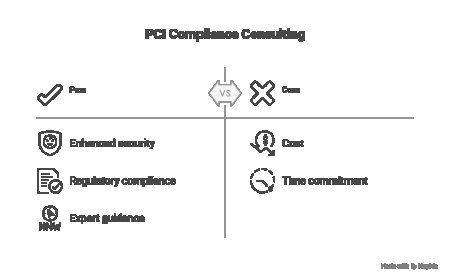Understanding Invoice Factoring Services: A Strategic Financial Solution for Businesses

In todays dynamic business environment, maintaining consistent cash flow is critical for operational success and long-term growth. Small to medium-sized enterprises (SMEs) often face challenges with delayed payments from clients, which can disrupt working capital and hinder day-to-day operations. One strategic solution gaining traction across industries is invoice factoring services, a financing tool designed to help businesses unlock the value of their accounts receivable.
This article explores the concept of invoice factoring, how it works, its benefits and drawbacks, and how businesses can strategically use it to improve financial stability.
What Are Invoice Factoring Services?
Invoice factoring services are a type of financial arrangement in which a business sells its outstanding invoices to a third-party company, known as a factor, at a discount. In return, the business receives immediate cashusually a large percentage of the invoice value (typically 70% to 90%)allowing it to improve liquidity without waiting for customer payments.
Once the invoice is sold, the factoring company assumes the responsibility of collecting the debt from the customer. After full payment is received, the factor remits the remaining balance to the business, minus a service fee.
This form of financing is especially attractive to businesses that deal with extended payment terms, often 30, 60, or even 90 days, and require a more predictable cash flow to operate efficiently.
How Invoice Factoring Works
To better understand invoice factoring services, consider the following simplified process:
-
Service/Delivery Rendered: The business delivers goods or services to the customer and issues an invoice.
-
Invoice Sold to Factor: The business submits the invoice to a factoring company.
-
Advance Payment Issued: The factor advances a percentage (typically 70-90%) of the invoices value.
-
Customer Payment Collected: The factor collects the full invoice amount directly from the customer.
-
Remaining Funds Released: After collecting the invoice payment, the factor releases the remaining balance to the business, deducting the agreed-upon factoring fee.
There are two main types of invoice factoring:
-
Recourse Factoring: The business remains liable if the customer fails to pay the invoice. If the customer defaults, the business must buy back the invoice or replace it.
-
Non-recourse Factoring: The factoring company assumes the risk of non-payment, offering more protection to the business, though fees may be higher.
Benefits of Invoice Factoring Services
1. Improved Cash Flow
Perhaps the most significant advantage of invoice factoring services is immediate access to cash. This liquidity enables businesses to pay suppliers, cover payroll, invest in growth, and meet other short-term obligations.
2. No Additional Debt
Unlike traditional loans or lines of credit, invoice factoring does not create debt on the balance sheet. It is essentially a sale of an asset (the invoice), not a loan, which can improve a company's financial ratios and credit profile.
3. Fast and Flexible Funding
Invoice factoring typically has a faster approval and funding process compared to conventional bank loans. This makes it an ideal solution for businesses needing quick access to capital.
4. Outsourced Collections
Factoring companies often manage collections, freeing up internal resources and reducing administrative burden. This can be especially useful for small teams without a dedicated accounts receivable department.
5. Scalable Financing
As a business grows and invoices increase in value and volume, so does the available funding. This scalability allows invoice factoring to support expansion without the need for renegotiating loan terms or seeking new credit lines.
Drawbacks and Considerations
Despite its advantages, invoice factoring services may not be suitable for every business. Here are some potential drawbacks to consider:
1. Cost
Factoring fees can range from 1% to 5% or more of the invoice value, depending on the risk profile, invoice terms, and client creditworthiness. Over time, these fees can add up and may be more expensive than traditional financing.
2. Customer Perception
Since the factor often interacts directly with customers to collect payments, some clients may view this as a sign of financial instability. It is essential to maintain transparency and ensure professionalism in all interactions.
3. Eligibility Requirements
Factoring companies typically evaluate the creditworthiness of a businesss customers rather than the business itself. If clients have poor payment histories, the factor may decline to purchase those invoices.
4. Contractual Obligations
Some factoring agreements may include long-term commitments, minimum invoice volumes, or exclusivity clauses. It is crucial to read and understand all terms before signing.
Ideal Candidates for Invoice Factoring Services
While invoice factoring can benefit a wide range of businesses, it is particularly well-suited for:
-
Startups and Growing Businesses: Those lacking a lengthy credit history but with reliable customers.
-
Seasonal Businesses: Companies with irregular income cycles can use factoring to maintain stable cash flow.
-
Businesses with Extended Payment Terms: Manufacturers, wholesalers, and service providers often deal with 3090 day payment periods.
-
Companies in Need of Immediate Cash: Businesses facing temporary cash flow gaps or unexpected expenses.
Industries that frequently use invoice factoring services include transportation, staffing, manufacturing, healthcare, and construction.
How to Choose the Right Factoring Company
Selecting a reputable factoring partner is critical to success. Here are key factors to consider:
1. Industry Expertise
Choose a factor familiar with your industry. This ensures they understand your cash flow cycles and customer relationships.
2. Transparency in Fees
Ensure all costs are clearly outlined, including factoring rates, service fees, and any hidden charges such as setup fees or early termination penalties.
3. Customer Service
Since the factoring company may interact with your clients, it is vital they uphold professional standards that reflect well on your business.
4. Flexibility of Terms
Look for factoring services that offer flexibility in invoice selection, contract length, and minimum volume requirements.
Conclusion: A Strategic Financial Tool
Invoice factoring services are more than just a short-term funding solution; they can be a strategic financial tool for businesses aiming to maintain liquidity, fuel growth, and manage working capital more effectively. While not without costs or considerations, the benefitsespecially for SMEs struggling with cash flowcan be substantial.
As with any financial product, businesses should carefully assess their specific needs, understand the terms of the arrangement, and choose a trusted partner. When used strategically, invoice factoring can provide a critical edge in a competitive marketplace, empowering businesses to seize new opportunities with confidence and financial agility.




































